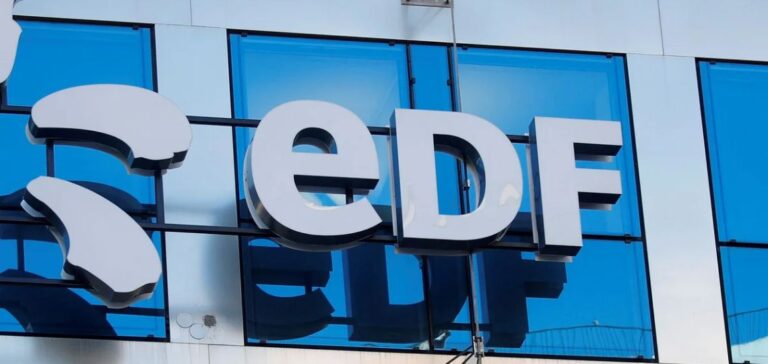French utility EDF announced a record net profit of €11.4 billion for 2024, supported by a recovery in nuclear and hydropower output. This performance marks a significant improvement from the difficulties encountered in 2022, when nuclear plant corrosion issues and adverse climate conditions impacted hydropower generation.
Strong profitability despite declining revenue
Despite its strong net profit, EDF’s revenue fell by 15.7%, reaching €118.7 billion. This decline is primarily due to lower electricity market prices, which affected the company’s overall income. The company’s earnings before interest, taxes, depreciation, and amortisation (EBITDA) stood at €36.5 billion, down 8.5%, while still remaining at historically high levels after 2023.
The company continues to bear a debt burden of €54.3 billion, a stable level compared to the previous year. EDF is working to contain its debt as it engages in discussions with the French government regarding the financing of a large-scale nuclear programme aimed at constructing six new EPR2 reactors.
International uncertainties impact investments
EDF is also facing challenges with its international investments, particularly in the United States, where offshore wind power has encountered regulatory obstacles. The company announced a €900 million impairment on its stake in the Atlantic Shores project, a joint venture with Shell. This decision follows restrictive policies by the US administration, which have frozen offshore wind permits and federal financing.
The Atlantic Shores project involves the construction of offshore wind farms off the coast of New Jersey in zones awarded in 2022. Shell has already suspended its participation in one segment of the project, recording an impairment of approximately $1 billion, according to Bloomberg. EDF, for its part, continues to assess its options in light of these new constraints.
Outlook and challenges for 2025
The year 2024 was marked by the commissioning and grid connection of the Flamanville EPR nuclear reactor, a strategic milestone for EDF. However, the company still needs to finalise the financing arrangements for its future EPR2 reactors, as discussions with the French government face delays.
Internationally, evolving energy policies, particularly in the United States, could affect the group’s ambitions in the renewable sector. EDF will need to balance the consolidation of its nuclear fleet with managing its foreign investments in an increasingly uncertain energy transition landscape.






















